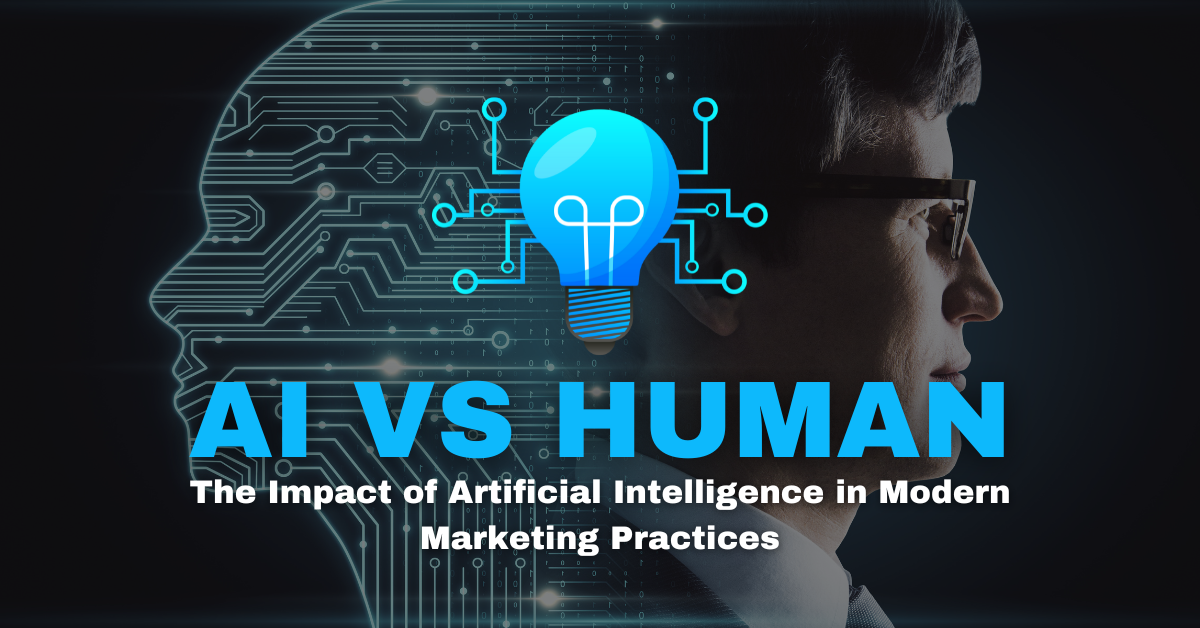In today’s fast-paced digital landscape, businesses are constantly seeking innovative ways to stay ahead of the curve. One such groundbreaking technology that has left an indelible mark on the marketing realm is Artificial Intelligence (AI). As we delve into the symbiotic relationship between AI and marketing, we uncover a transformative journey that is reshaping the very foundations of how businesses connect with their audiences.
Understanding AI Marketing: Unveiling the Powerhouse
AI marketing, often referred to as marketing artificial intelligence or artificial intelligence for marketing, is more than just a buzzword. It represents a paradigm shift in the way businesses conceptualize, strategize and execute their marketing endeavors. At its core, AI marketing involves leveraging advanced algorithms and data analytics to enhance decision-making processes, optimize campaigns, and deliver personalized experiences to consumers.
The Dynamic Duo: Artificial Intelligence and Marketing Synergy
In the dynamic landscape of digital marketing, staying relevant is not just an option but a necessity. AI, with its ability to process vast amounts of data in real time, emerges as a game-changer. Imagine having a marketing assistant who not only understands consumer behavior but also predicts it. This is where AI seamlessly integrates into marketing strategies, offering invaluable insights that empower businesses to make data-driven decisions.
Artificial intelligence marketing is not a one-size-fits-all solution; rather, it’s a versatile toolset that can be tailored to specific business objectives. From predictive analytics that forecast trends to natural language processing that enhances customer interactions, AI opens doors to a myriad of possibilities.
Navigating the AI Marketing Landscape
Let’s break down the key components that constitute the AI marketing landscape:
- Predictive Analytics: Anticipating consumer behavior is the holy grail of marketing. AI algorithms analyze historical data to forecast trends, enabling businesses to proactively tailor their strategies.
- Personalization Algorithms: Gone are the days of generic marketing messages. AI enables hyper-personalization, ensuring that each consumer interaction is tailored to individual preferences and behaviors.
- Chatbots and Virtual Assistants: Enhancing customer engagement, AI-powered chatbots and virtual assistants provide real-time support, streamline communication, and contribute to a seamless user experience.
- Image and Voice Recognition: Visual and voice search are becoming increasingly prevalent. AI, through image and voice recognition technologies, facilitates a more intuitive and user-friendly interface.
The Rise of AI in Marketing Campaigns
As businesses embark on the journey of incorporating AI into their marketing strategies, success stories abound. Whether it’s optimizing ad targeting, automating email campaigns, or refining content recommendations, the impact of AI is profound.
AI marketing doesn’t replace human creativity; instead, it amplifies it. The marriage of data-driven insights and creative ingenuity results in campaigns that resonate with audiences on a deeper level. It’s not just about reaching the right audience; it’s about engaging them in a way that feels personalized, authentic, and, above all, human.
Challenges and Ethical Considerations
While the benefits of AI in marketing are evident, it’s crucial to address challenges and ethical considerations. As AI becomes more ingrained in marketing practices, questions surrounding data privacy, algorithmic bias, and transparency come to the forefront. Striking a balance between innovation and ethical responsibility is paramount for the sustainable evolution of AI marketing.
Data-driven Decision Making
AI marketing thrives on the ability to process and analyze vast datasets in real time. This enables marketers to move beyond intuition and gut feelings, making decisions based on empirical evidence. Whether it’s understanding consumer preferences, identifying emerging trends, or evaluating the success of a campaign, the data-driven approach becomes a cornerstone of strategic planning.
Customer Segmentation and Targeting
Segmenting the target audience is a fundamental aspect of marketing, and AI takes this to a whole new level. Instead of relying on broad demographic categories, AI algorithms can identify nuanced patterns and behaviors, allowing for more granular customer segmentation. This, in turn, enables highly targeted and personalized marketing campaigns that resonate with specific audience segments.
Conclusion: Shaping the Future of Marketing Today
In conclusion, the fusion of artificial intelligence and marketing heralds a new era of possibilities. From optimizing efficiency and targeting to redefining the customer experience, the impact is profound. As businesses navigate the evolving landscape, embracing the potential of AI is not just an option but a strategic imperative. The journey is ongoing, and the businesses that harness the transformative power of AI in marketing will undoubtedly lead the way into the future.


